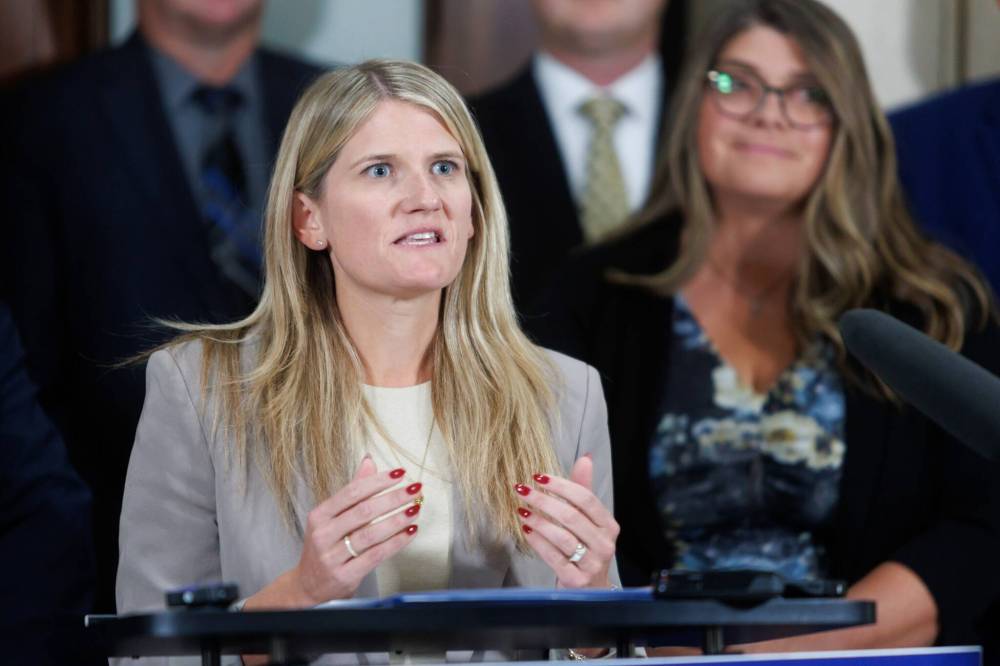The wheels on the omnibus go round and round
Advertisement
Read this article for free:
or
Already have an account? Log in here »
To continue reading, please subscribe:
Monthly Digital Subscription
$0 for the first 4 weeks*
- Enjoy unlimited reading on winnipegfreepress.com
- Read the E-Edition, our digital replica newspaper
- Access News Break, our award-winning app
- Play interactive puzzles
*No charge for 4 weeks then price increases to the regular rate of $19.00 plus GST every four weeks. Offer available to new and qualified returning subscribers only. Cancel any time.
Monthly Digital Subscription
$4.75/week*
- Enjoy unlimited reading on winnipegfreepress.com
- Read the E-Edition, our digital replica newspaper
- Access News Break, our award-winning app
- Play interactive puzzles
*Billed as $19 plus GST every four weeks. Cancel any time.
To continue reading, please subscribe:
Add Free Press access to your Brandon Sun subscription for only an additional
$1 for the first 4 weeks*
*Your next subscription payment will increase by $1.00 and you will be charged $16.99 plus GST for four weeks. After four weeks, your payment will increase to $23.99 plus GST every four weeks.
Read unlimited articles for free today:
or
Already have an account? Log in here »
Hey there, time traveller!
This article was published 16/11/2024 (375 days ago), so information in it may no longer be current.
If there’s one thing that can be said with certainty about politics and politicians in the 21st century, it’s that public confidence in them is at an all-time low.
There are myriad reasons for the accelerating erosion of trust that has brought us to the current state of political unease, including the decline of traditional media that adhere to journalistic standards of accuracy and fairness, the rise of social-media platforms that traffic in, and profit from, misinformation and the seeming inability — or perhaps unwillingness — of the broader public to distinguish between the two and make informed choices about the information they consume.
Thanks to the devolution of the information ecosystem into an environment in which there no longer exists a generally accepted set of facts around which matters of societal importance can be debated and decided, we now live in what is fairly described as the “post-truth” era, in which what is empirically true is routinely rejected by those who have “done their own research” and genuinely believe in an alternate version of reality.

MIKE DEAL / FREE PRESS
PC finance critic Lauren Stone
These are external factors, but those within the system must also shoulder some of the blame. To a certain extent, however, the manner in which politicians themselves conduct their business makes a major contribution to the loss of public trust in elected officials and government processes.
Take, for instance, the familiar drama that was played out in Manitoba’s legislature last week. Objections were raised by the official Opposition over impending passage of the governing New Democratic Party’s Bill 37 — the Budget Implementation and Tax Statutes Amendment (BITSA) Act — a massive, multi-faceted piece of legislation that includes numerous measures unrelated to the financial intentions embodied by the bill’s title.
Progressive Conservatives rightly argued that by cramming non-budgetary provisions — such as the creation of a seniors advocate, giving cabinet the authority to amend fuel taxes and hydro rates and changes to labour laws that will prohibit the use of replacement workers during labour disputes — into its BITSA bill, Premier Wab Kinew’s government is evading public scrutiny and legislative-committee debate.
While most pieces of legislation must be subjected to committee oversight, including input from public delegations, financial bills face only a straight-up vote in the House. By creating a so-called “omnibus” bill that includes both budget provisions and non-financial measures, the government is able to shield many of its signature agenda items from in-depth public examination.
“These are not just minor amendments,” PC finance critic Lauren Stone said last week. “These are stand-alone bills that the public should have their say in. … They’ve given themselves sweeping unprecedented powers by doing this.”
While she’s correct in criticizing the “sweeping” nature of the overstuffed BITSA bill, Stone’s use of “unprecedented” seems to ignore the fact her party, during its most time in power under premiers Brian Pallister and Heather Stefanson, was guilty of exactly the same kind of procedural transgression. From its majority-government election in 2016 to its defeat in 2023, the Tories routinely employed omnibus bills to ram through hefty packages of legislation.
The opposition NDP, of course, objected to the ongoing legislative overreach — again, ignoring the inconvenient fact the Doer/Selinger version of New Democratic government had done the same thing when it was in power from 1999 to 2016.
And so it went, and so it goes. When asked last week whether it’s time to change legislative rules and prohibit the inclusion of non-budgetary items in finance bills, the Tories were conveniently in favour and NDP members were predictably noncommital.
It’s precisely this sort of cyclical and cynical behaviour that fuels the public’s perception that politicians can’t be trusted.



